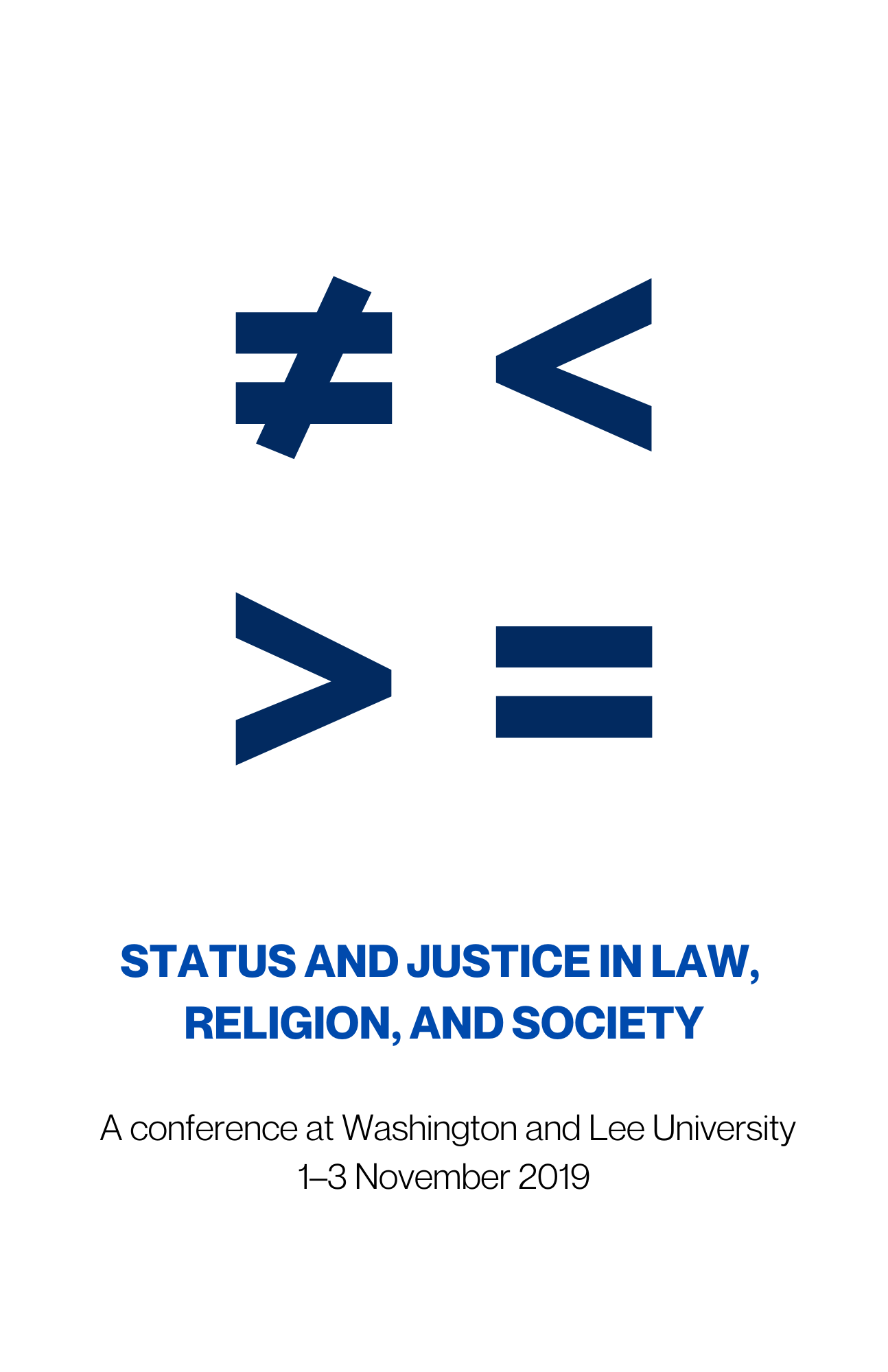Legal systems classify individuals in ways that entail particular rights, duties, capacities, and incapacities. In religious law as well as in earlier legal systems, basic status distinctions include those between free and unfree (and intermediate statuses), various religious or ethnic statuses that often were associated with social hierarchy, citizen and foreigner, and statuses within kin-group or family (head of household, spouse, divorcé, legitimate heir, etc.), besides a range of ascriptive statuses relating to gender, age, and physical or mental capacity. Today, law continues to define status in relation to marital status, legal disability, citizenship and immigration, discrimination, and affirmative action, but it also arises in connection with religious and customary “personal law” codes in many countries, tribal jurisdiction, statelessness, asylum, and human rights.
This interdisciplinary conference convened historians of religious, ancient, and medieval law systems from around the world with scholars of modern legal systems, on the hypothesis that comparative discussion can throw new light on the role of status-considerations in shaping how individuals experience and use the law, in defining what counts as a fair or just outcome, and in changes to the legal landscape in times of social change.
Adapted from the conference description available here
Co-sponsored by: Department of Religion and the School of Law, Washington and Lee University, with generous funding provided by the Morton Endowment for Philosophy and Religion; University Provost; the Johnson Program in Leadership and Integrity; Dean of the College; Transnational Law Institute
